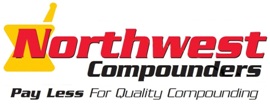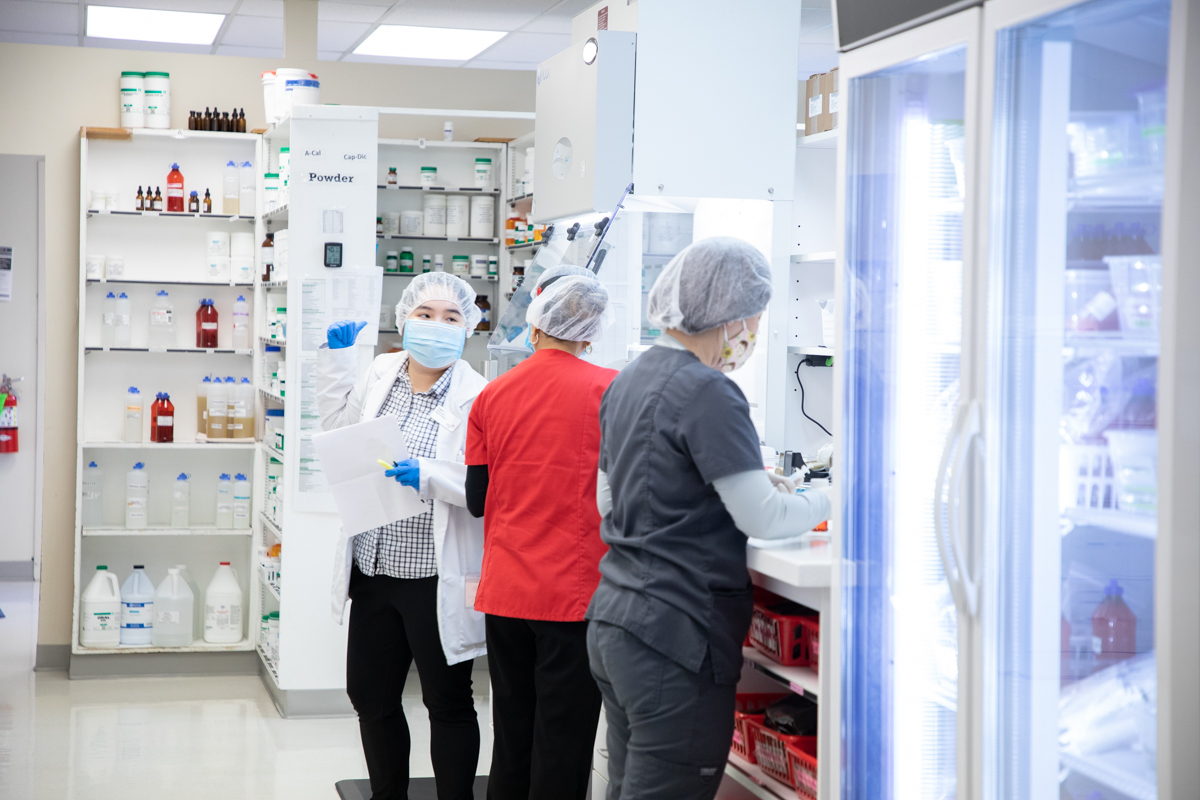Compounding pharmacies all over the U.S. claim to offer high quality products, but what does “high quality” truly mean and why is it significant? If most compounding pharmacies are claiming that they have the highest quality products, how can a consumer differentiate true quality from baseline industry standards?
Achieving high quality compounded products requires adherence to a strict, consistent and repeatable process. Quality assurance programs will differ between compounding pharmacies, but I believe the best quality assurance programs focus on the following six areas: ingredients, personnel training, equipment, internal and external quality assurance testing, dedicated quality assurance personnel and third-party accreditation. Understanding these six areas can provide a better understanding of the concept of quality in the compounding industry and reveal the determining factors of quality in a compounded product.
Ingredients
Compounding pharmacies purchase their ingredients from a handful of regional and national chemical wholesalers all over the U.S. These wholesalers purchase and import their materials from all over the world, but primarily from the U.S., EU, China and India. Before a wholesaler sells their chemicals to a compounder, they test their chemicals for potency, impurities, and dozens of other chemical characteristics. If the chemicals pass the wholesaler’s own internal testing standards as well as industry quality standards set by an organization called United States Pharmacopeia (USP), they will release the chemical for sale to compounding pharmacies.
USP sets the baseline standards for pharmaceutical ingredients and supplements in the U.S. Whenever possible, compounding pharmacies should use USP rated ingredients to ensure product quality. However, if a USP ingredient is not readily available or does not exist, compounding pharmacies may elect to use a non-USP rated ingredient.
Personnel Training
The act of compounding, which is the physical assembly of a compounded product, is largely performed by licensed pharmacy technicians. Formal education and training for compounding-related skills is virtually nonexistent. Compounding pharmacies must rely on their own internal training programs to make sure their technicians possess adequate knowledge and skills to safely and consistently make compounded products. A robust employee training program requires the existence of an up-to-date training manual, a dedicated training team, verbal and physical demonstration of learned skills, standardized observational assessments, and a director-level manager responsible for monitoring consistency and success of the program itself.
A company providing ongoing training and retraining is just as important as providing a new hire with a dedicated training period. At a minimum, existing employees should be required to re-demonstrate their compounding skills by way of a standardized, graded, observational exam twice a year. Any employees who fail to demonstrate proficiency in any compounding-related skills must be retrained and retested prior to allowing them to resume compounding activities.
Equipment
Compounding pharmacies utilize a wide range of tools and equipment to assist technicians during different stages of the compounding process. Items in this category range from handheld devices like mortars and pestles, spatulas, and hand mixers, all the way up to gravitational mixers and automated powder blenders. Most of these pieces of equipment are high-use items that must be replaced and calibrated often. Compounding pharmacies should seek a reputable third-party company to come on site to perform calibration activities at least twice a year. Performing compounding duties with old tools or uncalibrated equipment can lead to inconsistent and sometimes unsafe compounded products.
Internal and External Quality Assurance Testing
After compounding is complete, a series of internal quality assurance testing methods should be executed to ensure that the compounded product meets or exceeds quality standards. The testing methods that can be performed have varying levels of intricacy and unfortunately, cannot be utilized for every dosage form that a compounding pharmacy makes. The table below describes several internal quality assurance testing methods that we deploy at Northwest Compounders to ensure quality and safety in our products.
In addition to internal quality assurance testing, compounding pharmacies should also utilize third-party laboratories to verify potency and sterility (when applicable) on their compounded products. These tests are expensive and as a result are typically utilized for testing large batched items. Performing third-party lab testing on every single prescription would increase prescription prices to a point where consumers wouldn’t be able to afford them.
Dedicated Quality Assurance Personnel
Every compounding pharmacy that stands behind the quality of their products must dedicate an individual, or preferably a team, toward maintaining and monitoring the effectiveness of their quality assurance program. Routine product testing and regular sit-down meetings must be carried out. Quality assurance within compounding pharmacies is an evolving field that requires constant attention. There are always ways to improve product quality, even with companies that have well-established, time-tested quality assurance programs.
Third-Party Accreditation
Third-party private sector organizations, such as the Pharmacy Compounding Accreditation Board (PCAB), provide accreditation services for compounding pharmacies and many other industries. Organizations such as PCAB require applicants to adhere to a long list of policies and procedures before accreditation is granted. Typically speaking, third-party accreditors have more detailed, more stringent guidelines compared to state and federal regulators. Third-party accreditation is expensive but is a great way to ensure that a compounding pharmacy’s operations are exceeding what is minimally required. Consumers can advocate for themselves by choosing to do business with compounding pharmacies that have either achieved, or are actively working toward achieving, third-party accreditation.
A compounding pharmacy’s product quality is very much influenced by its internal processes and quality assurance procedures. A solid quality assurance program should include a special focus on the ingredients that go into the compound, personnel training, the correct use and maintenance of equipment, internal and external quality assurance testing, appointing dedicated quality assurance personnel, and seeking third-party accreditation. Compounding pharmacies come in all shapes and sizes, all with their own processes and procedures. Northwest Compounders is dedicated to exceeding baseline industry standards with advanced internal and external processes and procedures in order to provide its customers the very best compounded products and customer service.
About the Author
Luke Eilers is the COO of Northwest Compounders, one of the most respected compounding pharmacies in the Pacific Northwest, known for providing excellent customer service, exceptional product consistency and reliability, and expedient fulfillment. Having worked in the industry for 17 years, starting as a pharmacy technician and working his way up, Eilers has supported the organization’s growth from a couple employees to now more than 60. He is responsible for strategic planning, operations, personnel management, HR functions, client relations, regulatory affairs, and marketing.
Eilers earned a Bachelor of Science from Oregon State University in Corvallis, Oregon, and a Doctor of Pharmacy from Pacific University in Hillsboro, Oregon. He also holds a Certificate in Veterinary Pharmacy, and a Certificate in Basic Compounding and Certificate in Aseptic Compounding from the Professional Compounding Centers of America. Eilers is an affiliate faculty member and pharmacy preceptor for Oregon State University College of Pharmacy and Pacific University School of Pharmacy.

